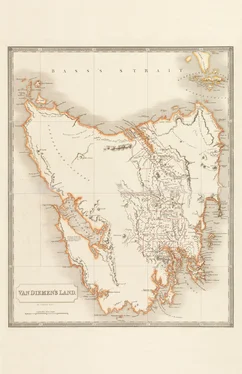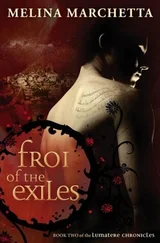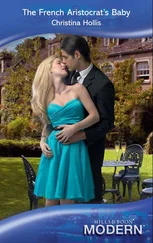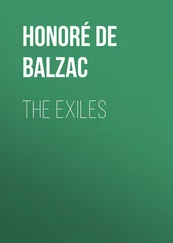“I can take care of meself.”
Stepping forward, Olive blurted, “That sailor shoved her. Buck. We all seen it.”
“Is that what happened?” the surgeon asked the girl.
“Dunno.”
“You don’t know, or don’t want to say?”
She lifted a bony shoulder in a shrug.
“Did the same to me,” Olive said. “Savage as a meat axe, that one. Ye should throw him off the ship.”
Dr. Dunne gave her a sharp look. “That’s enough, Miss Rivers.”
“What d’ye know.” Olive grinned, nodding to the crowd. “He knows who I am.”
The surgeon stood and faced her, hands on his hips. “Do not mistake my solicitude for affinity, prisoner,” he said. “I am paid to know who you are. And to keep you alive. Though perhaps not enough to accomplish that feat.”
Evangeline didn’t see the girl again until after chores were done for the day and the convicts were herded down to the orlop deck to be bolted in for the night. As she approached her berth with a nub of candle she saw that the bottom bunk across the aisle was occupied. The girl’s narrow back was visible under the blanket, her curls spilling across it.
Evangeline motioned to Olive, just behind her: Look there.
Olive climbed up to her bunk and leaned across the aisle. “Ay, Hazel.”
Silence.
“I been to Glasgow once.”
The form shifted slightly.
“That cathedral. Big, in’it? Huge.” Olive whistled through her teeth.
Hazel twisted around to look at them. “Ye seen it?”
“I have. You’re a long way from home.” When the girl didn’t answer, she said, “I’m Olive. This here’s Evange-a-leen. I call ’er Leenie. She floats along with her head in the clouds, but she’s all right.”
“Olive.” Evangeline sighed.
“What? It’s true.”
“I’ve never been to Glasgow, but I read about it,” Evangeline told Hazel. “ Rob Roy . I loved that book.”
“See what I mean?” Olive said. “She tries, god love ’er, but all she knows is books.”
Hazel made a grunt. A laugh, maybe.
“You’re pitiful young,” Olive said. “Ye must miss your mum.”
She snorted. “Hardly.”
“Ah, it’s like that, then. How old are ye?”
“Twenty.”
“Pah. If you’re twenty, I’m seventy-five.”
“Quiet!” a woman shouted. “And kill that candle, or I’ll do it for ye.”
“Mind your business,” Olive yelled back. “You’re not a day over twelve,” she said to Hazel.
In the glow of the candle Evangeline could see Hazel scowling at Olive. “I’m sixteen. Now leave me alone.” She leaned across the narrow aisle, looked Evangeline in the face, and blew the candle out.
The ship was at capacity. The day before they were to set sail, Evangeline heard voices from the water and saw the skiff coming toward the ship with three women, Buck, and another sailor in the middle, as usual, pulling on the oars. But this group was different. They were sitting bolt upright, for one thing, whereas convicts stooped; it wasn’t easy to stay erect in chains. And their clothing looked clean. Each wore a neat dark cloak and a white bonnet.
As the skiff pulled alongside the ramp, Evangeline realized it was the Quakers. She recognized the figure in front: the wisps of gray hair, the light blue eyes. Mrs. Fry.
In an uncharacteristic display of gallantry, Buck stepped out of the skiff and held it steady for the women to disembark. He took each woman’s arm as he helped her out of the boat: Mrs. Fry, then Mrs. Warren and Mrs. Fitzpatrick. The captain, who generally made himself scarce, had materialized at the railing in a formal uniform—a peaked cap with gold trim, a black tailcoat with gold buttons, braid, and epaulettes. The surgeon, in his navy blue uniform, was at his side. As the Quakers made their way up the ramp, the sailors below them hauled two large trunks out of the skiff. The sailors at the railing were quiet.
Evangeline had almost forgotten it was possible for women to be treated with such deference.
At the top of the ramp, Mrs. Fry spoke quietly to the captain and surgeon before turning to the small group of convicts nearby. “We’ll begin with those present.” Despite the creaks and clanks and the lapping of water against the hull, her voice was clear. Spying Evangeline, she beckoned her forward. “We have met previously, I believe?”
“Yes, ma’am.”
“At Newgate.” When Evangeline nodded, she said, “Ah, yes. You’re literate. Your father was a vicar.”
“You’ve a good memory, ma’am.”
“I make it a point to remember.” Mrs. Fry motioned to Mrs. Warren, who opened a trunk and brought out a small burlap sack, a book, and a bundle tied with twine. Mrs. Fry pressed the book into Evangeline’s hands. A Bible. “May this bring you solace.”
Evangeline rubbed the reptilian skin of the maroon cover with her thumbs. The sensation brought her back to the parish church in Tunbridge Wells, in the front pew, listening to her father’s sermons. All of his talk about sin and redemption that had seemed so theoretical at the time came back to her, painfully, now.
“Most of these women are illiterate. It is my hope that you will share the gift of reading,” Mrs. Fry said.
“Yes, ma’am.”
“I have some things to ease your journey.” Mrs. Fry picked up the bundle. “A knit cap for the cold—you won’t need it now, but you’ll be happy to have it later—an apron, and a shawl. Made for you by Quakers who believe in the possibility of salvation.” She set the bundle down and gave Evangeline the sack. “In here you’ll find all you need to make a quilt. For your child, perhaps.”
Evangeline peered inside: a thimble, spools of thread, a red cushion pricked with pins and needles, a pile of patchwork pieces tied with string.
“Remember, my dear: we are but vessels,” Mrs. Fry said. “You must labor to keep yourself humble, meek, and in a self-denying frame, that you may be fit to follow the Lord Jesus, who invites such to come to Him. Only through sorrow do we learn to appreciate kindness.”
“Yes, ma’am,” Evangeline said, though she hardly needed to labor, these days, to keep herself humble and self-denying.
“One last thing.” Reaching into the trunk, Mrs. Fry pulled out a flat disk on a red cord and held it on her palm.
The disk appeared to be made of tin and was as wide as her thumb. A number was stamped into the metal: 171.
“From now on, you will be known by this number,” Mrs. Fry said. “It will be printed on, or sewn into, every item you possess, and kept in a ledger that will be passed from the ship surgeon to the warden of the prison. You will wear this ticket for the duration of the journey. With God’s blessing.”
Evangeline frowned, feeling a flash of defiance. After all she’d been through, all she’d had to accept.
“What is wrong, my dear?”
“To be known by a number. It’s . . . degrading.”
Touching Evangeline’s hand with her fingertips, Mrs. Fry said, “It’s to be sure that you are accounted for. That you are not lost to the winds.” Holding up the necklace, she said, “Bend your neck, please.”
Evangeline felt like a horse resisting a bridle. Resistance, she knew, was pointless; the horse always ends up in the bridle. And so would she.
Medea , 1840
Early in the morning of June 16, the Medea shifted off her anchor and lurched forward, towed down the Thames by a steamer. Seagulls circled above the ship, cawing and squeaking; a Union Jack fluttered from the stern. Sailors shouted to one another above the lapping river, the heaving deck, the flap and slither of the canvas sails, the creaking masts. They scrambled hand over hand up the ropes to the wooden platforms four stories in the air and to the top of the yardarm, swinging like squirrels.
Читать дальше












